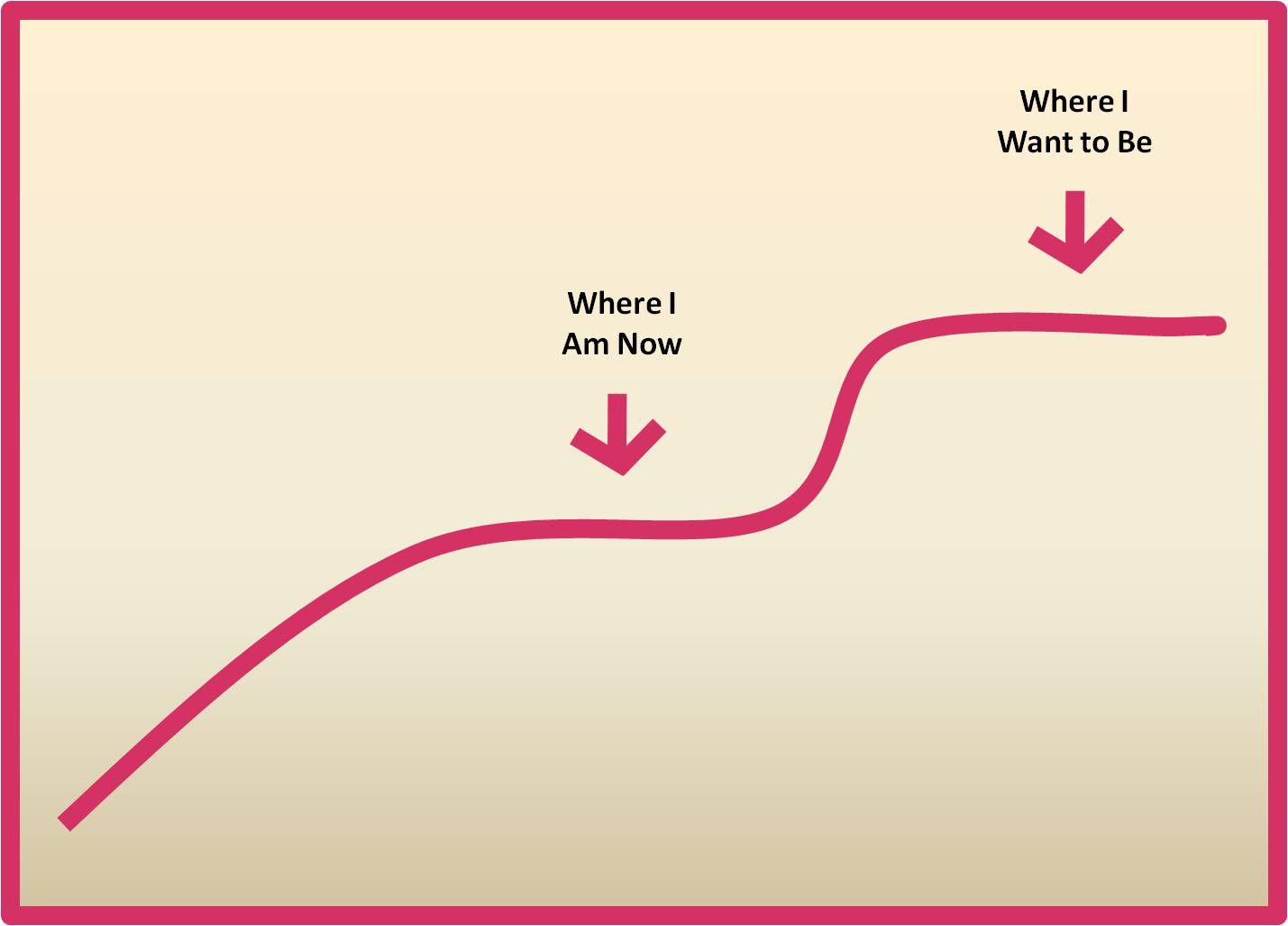I´ve reached a new stage of language learning: Stagnation. Or how specialists prefer to call it: I´ve hit a language plateau. It´s the flat part of the learning curve where you don´t make significant progress. A common stage among advanced language learners.
At the moment, it is most of all fun to use my foreign languages. I manage to arrange just about anything: My knowledge is sufficient for my job, to develop friendships and organize daily tasks. Every now and then I learn a new word or expression, but there is no urgent need to progress rapidly like there was in the beginning. I have to admit that I find this stage quite comfortable.
Nevertheless, the altitude of my current plateau isn´t the right one yet: Vocabulary, grammar and pronunciation can still use improvement. I get my points across, but I´d like to do so more naturally. I will have to put more effort in order to reach a higher plateau I can feel satisfied with. One of the challenges I´m facing: Without necessity of progress motivating myself to progress.
The Typical Learning Curve
Hitting a plateau is an entirely natural stage of skill acquisition. When you just start learning a new skill, you must concentrate intensely while you´re learning by making mistakes (1). After a while, you feel comfortable with the new skill, make fewer mistakes and have to concentrate less (2). Eventually you´re good at it, you put your new skill on autopilot and there´s when we stop progressing (3).
Those are the three stages of learning described by Fitts and Posner. When you´ve hit a plateau, it doesn’t neccesarily mean that you’re not learning anything. You´re probably still making some progress, but you´re not noticing it because its only a small bit of progress.

Beyond the Plateau of Language Learning
I´ve been stuck below my desired language goals for months now and it´s time to change this. There are many interesting tips out there on the Web to break plateaus. I picked out the 3 most interesting ones to aim for during the upcoming months.
1) Getting Motivated
I mentioned the lack of neccesity which influences my low motivation to study actively. I see this as the fundamental cause of my plateau and therefore thought of a couple of reasons to motivate myself again:
- I´ll be needing my foreign languages on the long-term (both for private and work life); my mistakes would be chasing me forever
- I would be able to develop deeper relationships and memories and have therefore a better quality of life abroad
- I´m creating positive public pressure by telling others about my language progress project – you guys will be my witnesses and I ask you to keep me accountable 😉
- Discontent should make a goal a neccesity of personal fulfillment
2) Changing Strategies
Although I use my languages on a daily basis, my approach of improvement is rather slack: I talk fast so people won´t notice my mistakes, I know I´m not saying it correctly but I don´t bother asking or looking it up, I don´t repeat corrections people give me, and I don´t write down new words when I ask for their meanings. Those are bad habits that have slipped into my foreign language usage.
I want to change my strategy from slack to mindful. Being mindful about my mistakes, words I don´t know, situations in which I don´t feel comfortable or tend to avoid, etc. I will be more mindful about the gaps in my knowledge to fill them in. Moreover, rather than only talk and listen, I will start reading and writing again. Where nothing is to hurry or distract me.
3) Setting Goals
Since I left university, I haven´t studied to achieve particular language learning goals. Without a teacher giving me exercises and scheduling exams, I mainly improved by everyday practice. I haven´t glanced over my notes and study books for a long time now. I expect that setting goals will bring me back to my books and will help me be more conscious about my limitations.
Improving vocabulary, grammar and pronunciation is too vague. I´ll be setting weekly and long-term SMART goals for myself. One of my grammar goals is for example: applying the Spanish subjunctive consciously and correctly within the next 6 months. From today on, I´ll spend every day one hour on my language objectives and more towards the deadlines if needed.
Language & Living Life Abroad to its Fullest
Right now isn´t the best moment for me to start with active study again. A busy month is coming up. I decided to start today anyway. Last week something made me think about my language shortcomings. Now that I have given my plateau a good thought, I feel energized to begin and I want to hold on to that feeling without risking losing it.
So far my language level has enriched my life abroad with great friendships and a better understanding of the country. This is my attempt to reach a higher platform to develop an even stronger connection to a culture that after two years can feel still so foreign sometimes. This is me exploring the limits of the positive correlation between foreign language skills and experiencing a country to its fullest. Do you join me?
I´m sure that if you keep making efforts, you´ll see a big leap again soon. There is no better time to progress than now – while simultaneously avoiding to forget native language skills.
Have you managed to overcome a plateau with a foreign langauge?
What is your advice for other language learners?
Share your thoughts in the comment section below.
